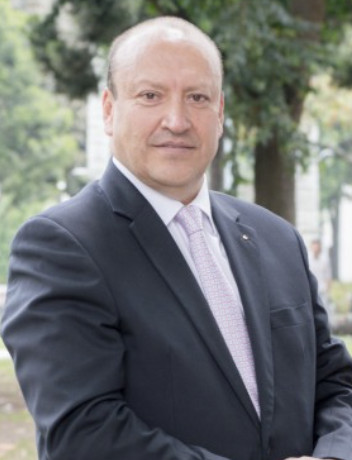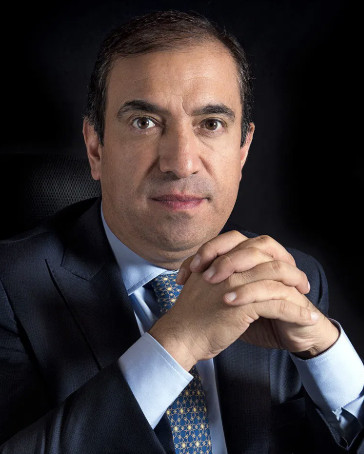Colombia gambling in disarray as Petro makes VAT Charge permanent
Lucia Gando reports that President Petro sticks by his tax plan of VAT charges, to conclude a miserable year for Colombia’s gambling sector.
The Tax Budget of Colombia confirms that the nightmare scenario for gambling licences will continue, as President Gustavo Petro maintains VAT charges on specific industries.
As announced by Finance Minister Germán Ávila, the government will maintain a 19% VAT charge on all gambling deposits, now assigned as a “permanent measure” put to congress.
The VAT charge has rocked Colombia’s gambling sector since its introduction at the end of 2023 – deemed a ‘temporary measure’ by Petro to raise emergency funds for Catatumbo, a province destabilised by guerrilla conflicts.
Now, Petro’s administration has adopted the measure into its wider tax reform, with the ambition of raising an additional 30trn pesos (€6.8bn) to fund expanded social welfare and health programmes.
Defending the policy, Finance Minister Germán Ávila stated: “The proposal guarantees not only that we finance the 2026 budget, but also that we provide medium-term macroeconomic stability.
“The reform is targeted to correct fiscal imbalances, internalise the social costs of alcohol, tobacco and gambling, and protect the most vulnerable without touching the basic food basket.”
Alongside gambling, the budget raises taxes on alcohol, with VAT on spirits and rum jumping from 5% to 19% to generate 681bn pesos (€155m). Cigarette taxes will climb 58% to deliver 762bn pesos (€173m), vaping products contribute 309bn pesos (€70m), and fuel charges are forecast to raise 2.6trn pesos (€590m) in the first year, rising to 8.1trn (€1.8bn) by 2030.
2025 has been a miserable year for Colombian gambling. The market, once hailed as one of the fastest-growing in Latin America, is now under strain as operators grapple with a measure trade bodies describe as “unsustainable”.

Evert Montero Cárdenas, President of Fecoljuegos, stressed that operators are reaching a breaking point: “It’s an unsustainable burden from a financial standpoint. Operators have been forced to grant bonuses to absorb the VAT impact and avoid passing it on to users.
This has reduced our ability to contribute to healthcare, with monthly transfers falling from 40bn pesos (€9m) to 27 billion pesos (€6.1m). That is a shortfall of 13 billion pesos every month.
“The VAT already consumes 53% of our operating revenue, and when you add royalties and other charges, we are facing an effective tax burden of close to 80%. No industry can survive under those conditions. We are willing to engage with the government on responsible alternatives, but right now the reform threatens both the sustainability of licensed operators and the healthcare resources we are mandated to fund.”
Further frustration has stemmed from the government’s lack of consultation with licence holders, who argue the decision was imposed without dialogue. Executives are now weighing the impact on marketing budgets and sports sponsorships – areas where Colombia’s online bookmakers had previously driven growth and visibility.

Juan Carlos Restrepo, President of Asojuegos, argued that the tax is counterproductive to Colombia’s long-term regulatory goals:“The effect of this VAT is causing a significant shift toward illegal activity and toward international platforms that don’t have contracts in Colombia.
Players are already being lured by offshore sites that do not pay a peso in taxes, while licensed firms are pushed into a corner. On top of this, the increase in withholding tax on prizes from 20% to 30% sends a negative message to customers, making legal play less attractive.
The government insists the middle and working classes are protected, but deposits are happening every day in lower-income neighbourhoods. In practice, this is a tax on entertainment, one that risks undermining the public trust we’ve built since 2017 when the market was legalised.”
The policy also fits Petro’s ideological stance. While in opposition, he criticised the liberalisation of gambling and suggested that Colombia should have established a state-owned online monopoly, rather than opening the market in 2017 under Coljuegos’ authorisation framework.
Looking ahead, industry associations Fecoljuegos and Asojuegos have urged the government to open discussions on modifying the tax code to alleviate fiscal burdens on licences.
President Petro is warned that the ultimate proof will be whether VAT charges undermine the sector’s legislative duty of delivering reliable contributions to Colombia’s healthcare system, the key justification for the regulated online market launch in 2017.
No Comments